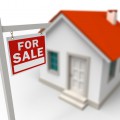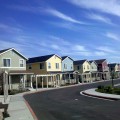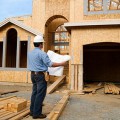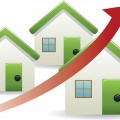Home prices are rising, which is good news for the economy in general and for homeowners and potential home buyers in particular. Over the past year, the majority metropolitan areas in the United States experienced a steady increase in home prices. This continual rise signals a modest recovery in the housing market, which has the ripple effect of increasing consumer and industry confidence.
According to the S&P/Case-Shiller Home Price Index, the average price of a home rose 4.3% from October 2011 to October 2012. The home price indices for the top 20 metropolitan areas were even higher than the 4.0% increase forecasted by analysts.
The news is a ray of light for those in the housing industry, and provides incentive to those considering selling, buying or refinancing their home. According to David M. Blitzer, Chairman of the Index Committee at S&P Dow Jones Indices, “Looking over this report, and considering other data on housing starts and sales, it is clear that the housing recovery is gathering strength.”
In the past year, only 2 of the 20 metropolitan areas in the composite–Chicago and New York–posted house price drops: 1.3% and 1.2%, respectively.
On the other hand, 18 cities experienced an increase in house prices. Portland topped the list with a 21.7% increase, followed by Detroit, which experienced a 10.0% home price increase. Minneapolis, San Francisco and Las Vegas round out the top five at 9.2%, 8.9%, and 8.4%, respectively.
Ripple Effect
Comparably speaking, the average price of a home in October 2012 is at the same level that it was in the autumn of 2003. These favorable prices positively affect homeowners, builders, and others in the real estate industry.
For example, when homeowners are more confident in the value of their home, they are more likely to spend instead of save money. Homeowners are also more likely to tap into their home’s equity.
Those considering selling their homes are more likely to do so when they can get a higher asking price. And while it may seem that buyers would have more incentive to make a purchase when home prices are low, the opposite is true: When prices are low, they are more concerned about the unstable economy and less likely to purchase a home.
Rising home prices also positively affect new construction. The U.S. Census Bureau and the Department of Housing and Urban Development noted that building permits for new privately-owned residential construction have also increased by 26.8% from November 2011 to November 2012. In addition, the new residential construction completion rate for privately-owned housing has risen by 16.9% from November 2011.
Builder confidence is also consistently increasing, according to monthly surveys conducted by the National Association of Home Builders (NAHB)/Wells Fargo Housing Market Index. According to Barry Rutenberg, Chairman of the NAHB, “Builders across the country are reporting some of the best sales conditions they’ve seen in more than five years, with more serious buyers coming forward and a shrinking number of vacant and foreclosed properties on the market.”
[cf]tracking[/cf]






No Comment